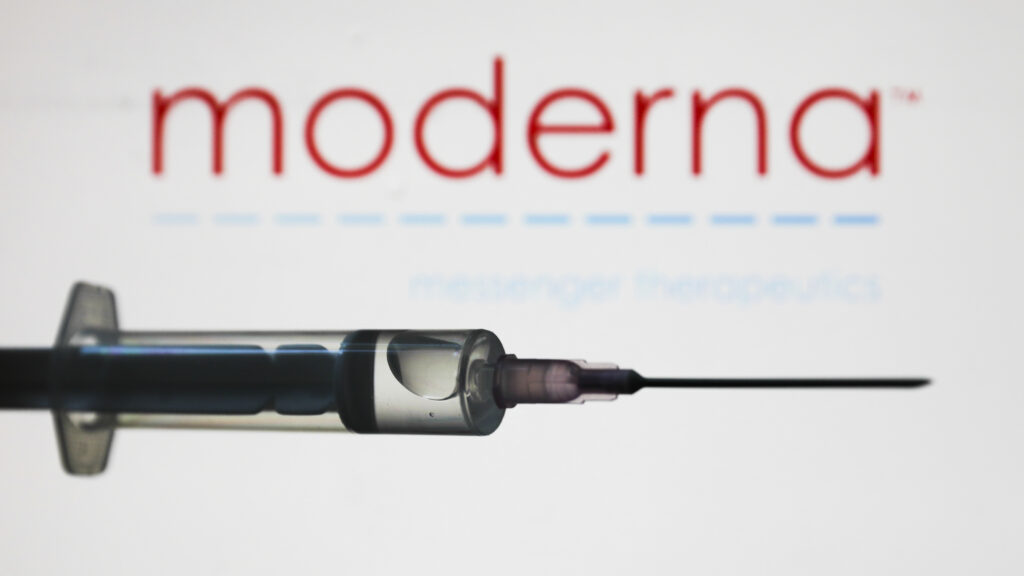Want to stay on top of the science and politics driving biotech today? Sign up to get our biotech newsletter in your inbox.
Hello, everyone. Damian here with the fallout from Pfizer’s downbeat update, a new entrant in obesity research, and an orthogonal CRISPR business.
advertisement
The need-to-know this morning
- Apellis Pharmaceuticals said a European advisory committee is expected to recommend against the approval of Syfovre, its eye drug for a common form of blindness. The company plans to appeal the negative ruling.
- Sage Therapeutics and Biogen announced the commercial launch of Zurzuvae, an oral treatment for women with postpartum depression.
- Merck and Moderna reported three-year follow-up data on their mRNA-based immunotherapy for advanced melanoma. Phase 3 studies are underway.
- The FDA accepted Amgen’s marketing application for tarlatamab, a bispecific antibody to treat advanced small cell lung cancer. The approval decision date is June 12, 2024.
Is it time to worry about Moderna?
Yesterday’s news that Pfizer is expecting to sell far fewer Covid-19 vaccines than Wall Street expected sent shares of Moderna down as much as 6% on fears that the company could be in for a painful revision of its own.
Moderna has already reduced its 2023 revenue projection to $6 billion, and the company is expecting that number to get cut again in 2024. But there’s reason for concern that even those numbers will come down. As Leerink analyst Mani Foroohar pointed out in a note to clients, the company’s chief commercial officer is leaving the company despite Moderna’s earlier positive statements about vaccine uptake for the fall season. Add that to Pfizer’s downbeat update and it reads like an ominous sign for Moderna’s future revenue.
But not if you ask CEO Stéphane Bancel, who will lead Moderna’s commercial operations. Speaking to Barron’s, Bancel said Pfizer’s issues don’t spell trouble for his company. “People read across things,” he said. “It doesn’t mean they’re right.”
advertisement
Biotech turned green
After 12 months of volatility and a fall that brought five-year lows, the closely watched XBI biotech index finally made up its losses for 2023. After yesterday’s 5% gains, the index is now up about 3% on the year. As recently as October, it was down more than 20%.
While biotech’s recovery is cheerful news for investors, the root causes might be more than a little frustrating. The sector’s rebound began last month on the news that inflation had pretty much flattened, suggesting the Federal Reserve is almost certainly done raising interest rates. Yesterday’s rally came after Fed Chair Jerome Powell said policymakers are now looking into when they can start cutting.
That’s good news for market sectors perceived as risky, of which biotech is one, but it’s also a sobering reminder for biotech specialists that their fortunes often depend on macroeconomic factors well outside their control.
There’s always money in the CRISPR patents
Editas Medicine, the other CRISPR company, has spent a decade plagued by delays, disappointments, and turnover at the top-ranks. But thanks to a favorable patent ruling, the company seems to have arrived on a solid business model.
As STAT’s Jason Mast reports, Vertex Pharmaceuticals agreed to pay Editas $50 million, along with a series of annual payments through 2034, in exchange for rights to use CRISPR-Cas9 in its sickle cell therapy approved last week. Editas is also up for another “contingent” $50 million sum, followed by annual payouts worth between $10 million and $40 million, depending on how well Casgevy sells.
It’s a small transaction in pharmaceutical terms, but it makes a big difference for Editas. The company now has enough money to sustain its operations into 2026, a year beyond its earlier projections, and the deal could be a framework for future agreements with other CRISPR companies. Evercore ISI raised its Editas price target from $8 a share to $15 a share based solely on the deal’s potential.
Machine learning and obesity, united at last
This morning, Deep Apple Therapeutics launched with $52 million from the VC firm Apple Tree Partners. The startup plans to develop new small molecule medicines for obesity, inflammatory conditions, and other conditions, using a machine learning platform.
This isn’t a case where Deep Apple, which plans to select a lead candidate for an inflammatory condition in the second quarter, saw how many dollars GLP-1 drugs are bringing in and decided to jump on the bandwagon.
As CEO Spiros Liras tells it, the company’s ideas came from a 2019 paper that inspired Apple Tree Partners to sponsor a research collaboration with the University of California, San Francisco.

